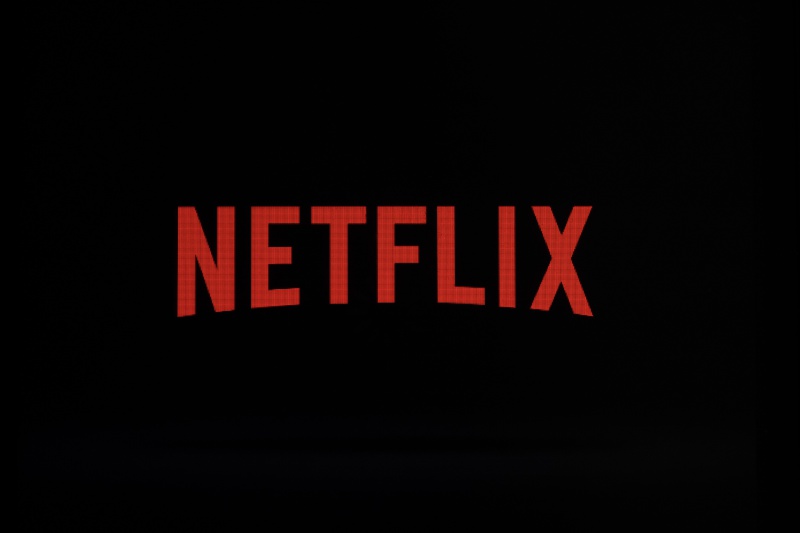
A Netflix logo is displayed on an iPhone
15:07 JST, April 20, 2022
SAN FRANCISCO (AP) — An unexpectedly sharp drop in subscribers has Netflix considering changes to its service that it has long resisted: Minimizing password sharing and creating a low-cost subscription supported by advertising.
The looming changes announced late Tuesday are designed to help Netflix regain momentum it’s lost over the past year. Pandemic-driven lockdowns that drove binge-watching have lifted while deep-pocketed rivals such as Apple and Walt Disney began to chip away at its vast audience with their own streaming services.
Netflix’s customer base fell by 200,000 subscribers during the January-March quarter, the first contraction it’s seen since the streaming service became available throughout most of the world outside of China six years ago. The drop stemmed in part from Netflix’s decision to withdraw from Russia to protest the war against Ukraine, resulting in a loss of 700,000 subscribers. Netflix projected a loss of another 2 million subscribers in the current April-June quarter.
The erosion, coming off a year of progressively slower growth, has rattled another key constituency for Netflix — its shareholders. After revealing its disappointing performance, Netflix shares plunged by more than 25% in extended trading. If the stock drop extends into Wednesday’s regular trading session, Netflix shares will have lost more than half of their value so far this year — wiping out about $150 billion in shareholder wealth in less than four months.
Aptus Capital Advisors analyst David Wagner said it’s now clear that Netflix is grappling with an imposing challenge. “They are in no-(wo) man’s land,” Wagner wrote in a research note Tuesday.
The Los Gatos, California, company estimated that about 100 million households worldwide are watching its service for free by using the account of a friend or another family member, including 30 million in the U.S. and Canada. “”Those are over 100 million households already are choosing to view Netflix,” Hastings said. “We’ve just got to get paid at some degree for them.”
To prod more people to pay for their own accounts, Netflix indicated it will expand a trial program it has been running in three Latin American countries — Chile, Costa Rica and Peru. In this locations, subscribers can extend service to another household for a discounted price. In Costa Rica, for instance, Netflix plan prices range from $9 to $15 a month, but subscribers can openly share their service with another household for $3.
Netflix offered no additional information about how a cheaper ad-supported service tier would work or how much it would cost. Another rival, Hulu, has long offered an ad-supported tier.
While Netflix clearly believes these changes will help it build upon its current 221.6 million worldwide subscribers, the moves also risk alienating customers to the point they cancel the service.
Netflix was previously stung by a customer backlash in 2011 when it unveiled plans to begin charging for its then-nascent streaming service, which has previously been bundled for free with its traditional DVD-by-mail service before its international expansion. In the months after that change, Netflix lost 800,000 subscribers, prompting a apology from Hastings for botching the execution of the spin-off.
Tuesday’s announcement was a sobering comedown for a company that was buoyed two years ago when millions of consumers corralled at home were desperately seeking diversions — a void Netflix was happy to fill. Netflix added 36 million subscribers during 2020, by far the largest annual growth since its video streaming service’s debut in 2007.
But Netflix CEO Reed Hastings now believes those outsized gains may have blinded management. “COVID created a lot of noise on how to read the situation,” he said in a video conference Tuesday.
Netflix began heading in a new direction last year when its service added video games at no additional charge in an attempt to give people another reason to subscribe.
Escalating inflation over the past year has also squeezed household budgets, leading more consumers to rein in their spending on discretionary items. Despite that pressure, Netflix recently raised its prices in the U.S., where it has its greatest household penetration — and where it’s had the most trouble finding more subscribers.
In the most recent quarter, Netflix lost 640,000 subscribers in the U.S. and Canada, prompting management to point out that most of its future growth will come in international markets. Netflix ended March with 74.6 million subscribers in the U.S. and Canada.
Top Articles in News Services
-

Arctic Sees Unprecedented Heat as Climate Impacts Cascade
-

Prudential Life Expected to Face Inspection over Fraud
-

South Korea Prosecutor Seeks Death Penalty for Ex-President Yoon over Martial Law (Update)
-

Trump Names Former Federal Reserve Governor Warsh as the Next Fed Chair, Replacing Powell
-

Japan’s Nagasaki, Okinawa Make N.Y. Times’ 52 Places to Go in 2026
JN ACCESS RANKING
-

Univ. in Japan, Tokyo-Based Startup to Develop Satellite for Disaster Prevention Measures, Bears
-

JAL, ANA Cancel Flights During 3-day Holiday Weekend due to Blizzard
-

China Confirmed to Be Operating Drilling Vessel Near Japan-China Median Line
-

China Eyes Rare Earth Foothold in Malaysia to Maintain Dominance, Counter Japan, U.S.
-

Japan Institute to Use Domestic Commercial Optical Lattice Clock to Set Japan Standard Time


























